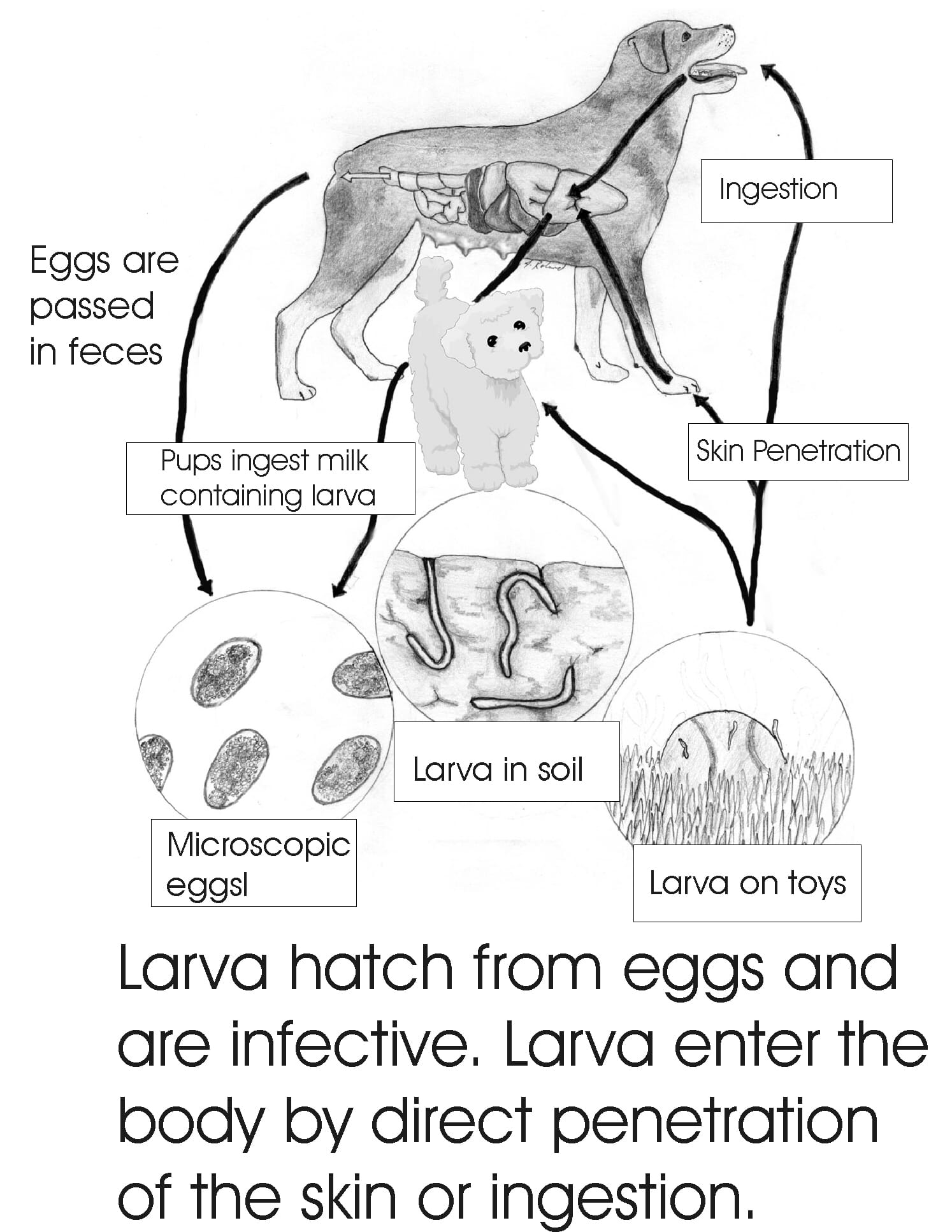The bond between humans and their dogs is a special one, often extending beyond simple companionship to treating our canine friends as integral members of the family. This close relationship, however, can sometimes lead to an unintended consequence: the exchange of parasites. A common question many pet owners have is, “Can humans get worms from dogs?” This concern is entirely valid, and understanding how transmission occurs is key to safeguarding the health of both your family and your beloved pets.
Understanding Worm Transmission from Dogs to Humans
Parasites, including various types of worms, have several ways they can transfer from animals to humans. Recognizing these pathways is the critical first step in effective prevention.
Direct Contact with Contaminated Feces or Soil
One of the primary routes for human infection is through direct contact with a dog’s feces or soil contaminated by it. When a dog harbors intestinal worms, their eggs or larvae are often shed in their stool. If a person, particularly a child who may be less aware of hygiene practices, comes into contact with this contaminated material and subsequently touches their mouth, food, or other objects, the transmission can occur.
Ingestion of Contaminated Food or Water
Worm eggs can also contaminate water sources or food that has been exposed to infected soil or feces. Consuming food or water that has been compromised in this way can lead to the ingestion of worm eggs and subsequent infection in humans.
Common Worms Transmissible from Dogs to Humans
Several types of intestinal parasites can be passed from dogs to people, each presenting unique health implications and requiring specific knowledge for prevention and early detection.
- Roundworms (Toxocara canis): These are among the most frequently transmitted worms. In humans, roundworm larvae can cause visceral larva migrans (VLM), a condition where the migrating larvae may damage internal organs, potentially leading to serious health issues if not addressed.
- Hookworms (Ancylostoma caninum): Hookworm larvae can also infect humans, causing a condition known as cutaneous larva migrans (CLM). This typically manifests as intensely itchy, red, raised tracks on the skin, marking the path of the migrating larvae.
- Tapeworms (Dipylidium caninum): While less common than roundworm or hookworm transmission, humans can contract certain types of tapeworms from dogs. This usually happens indirectly, through the accidental ingestion of an infected flea that carries tapeworm larvae.
Essential Prevention Strategies for Pet Owners
Protecting your household from worm transmission involves a multifaceted approach encompassing good personal hygiene, diligent pet care, and maintaining a clean environment. Implementing these actionable tips can significantly minimize the risk.
Prioritize Regular Veterinary Check-ups and Deworming
Ensuring your dog receives regular veterinary examinations and adheres to a prescribed deworming schedule is paramount. Professional veterinary guidance can help determine the most appropriate preventive measures tailored to your dog’s specific needs and risk factors.
Uphold Strict Personal Hygiene Practices
Washing your hands thoroughly and frequently is a simple yet highly effective preventive measure. This is especially important after handling your dog, their waste, gardening, or any activity that might involve contact with potentially contaminated soil. Educating children about the importance of handwashing can further reduce transmission risks.
Maintain Environmental Cleanliness
Prompt and proper disposal of your dog’s waste is crucial for preventing the spread of parasite eggs. Keeping your home and yard clean also contributes to a healthier environment for both your pets and your family, reducing the overall chances of contamination.
Recognizing When Veterinary Care is Necessary
If you suspect your dog may be suffering from a worm infestation, seeking prompt professional veterinary attention is vital. Common signs in dogs can include visible worms in their stool, unexplained weight loss, a distended or bloated abdomen, general lethargy, or noticeable changes in appetite. Early detection and treatment are key to your dog’s well-being and also help prevent potential transmission to household members.
Protecting the health of your entire family, including your pets, is a shared responsibility. If you have any concerns regarding your dog’s health or potential parasite issues, please consult with a veterinarian.

